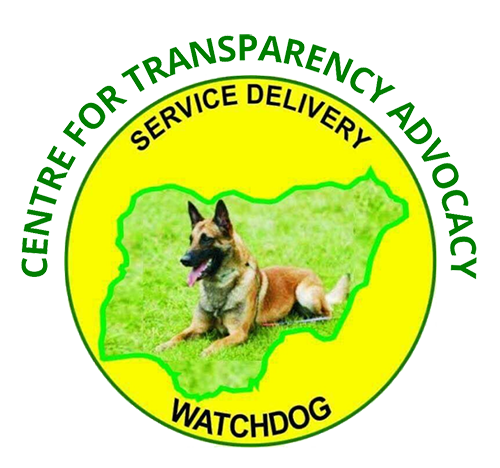COMMUNIQUÉ ISSUED AT THE END OF A ONE DAY ROUND TABLE ON OVERVIEW OF ELECTIONS IN NIGERIA POST 2015 ORGANISED BY THE ELECTIONS ROUNDTABLE EXPERT GROUP (EREG) WITH SUPPORT FROM INDEPENDENT SERVICE DELIVERY MONITORING GROUP (ISDMG) ON 20TH APRIL, 2017 AT GOLDEN TULIP HOTEL, FESTAC, LAGOS.
INTRODUCTION
On April 20, 2017, Stakeholders drawn from different interests who cover the Civil Society, the political class, citizens, INEC, development partners among others converged under the auspices of the Election Roundtable Expert Group (EREG) at a CSO Strategy Meeting to Review Elections in Nigeria Post 2015 looking towards the 2019 general elections at the Golden Tulip Hotel Festac, Lagos. After robust discussions, Stakeholders made observations, identified challenges, made recommendations and resolutions as follows:
OBSERVATIONS
- Stakeholders support the Electoral Management Body led by Professor Yakubu on the progresses made so far.
- We congratulate the INEC Chairman, Professor Yakubu on his election as the Chairman of the ECOWAS Network of Electoral Commissions.
- That the courage exhibited by the current INEC Chairman and his commissioners in the discharge of his duties is commendable as reflected in the recent prosecution of corrupt staff of INEC.
- INEC has successfully, conducted a total of 167 elections with 123 concluded on first ballot. Others were concluded after a second ballot and has a less than 1% out right cancellation by tribunal.
- The participants support the stance of the current INEC Chairman, Professor Yakubu on corruption. This is highly commendable. His zero tolerance to corruption led to the suspension and prosecution of 202 INEC staff found complicit in electoral malpractices in addition to the collaboration with EFCC to mitigate corruption in the electoral process.
- INEC has done well by the engagement of stakeholders in its quarterly meetings with stakeholders that resulted in the development of the INEC’s 2017-2021 Strategic Plan.
- Participants observed the introduction of E-Tracking and E-Collation of results by INEC for a more credible electoral process and therefore, support the process.
- The successful passing into law of the electronic voting system by the Senate is a welcome development. We hope the House of Representatives will do same.
- Stakeholders note and commend the early commencement of continuous voter registration that will commence on Thursday, April 27, 2017 and voter education in preparation and readiness for the 2019 General Elections.
CHALLENGES
- Participants noted some challenges faced in the electoral process;
- Budget passage and funding.
- Activities, hate speeches and war mongering of politicians during elections.
- Collusion of collation officers to manipulate election results
- Coordination and welfare of security personnel.
- Interference of security personnel in the electoral process as occasioned at the Edo elections.
- Vote buying.
- Voter apathy.
- Violence during elections.
- Security agencies are becoming the driving force in the electoral process, a situation that is worrisome.
- Community through conspiracy, pad voter’s registers especially in rural areas.
- That Inter-agency committee on election security is weak and not properly coordinated.
- People’s perception of INEC is poor judging from the conducts of INECs adhoc staff as they see INEC from the perspectives of the conducts of those adhoc staff.
RECOMMENDATIONS AND CONCLUSIONS
- The present and any future amendments to election legislation should be enacted sufficiently in advance of elections to provide political parties, candidates and voters adequate time to become informed of the new rules of the election process.
- INEC should immediately commence arrangements to review constituencies and polling units in Nigeria, as this is long overdue. The process of reorganization should be made as systematic and as transparent as possible and must be completed well before the 2019 elections.
- INEC should clean up the voters registers to remove deceased voters, to ascertain exactly the numbers of voters that have been transferred and the authentic registered voters in the on-going continuous voters registration exercise.
- INEC should continue engagements with stakeholders so far commend the INEC leadership in the string of successes recorded and pray for its sustainability through continuous consultations, collaborations and partnership with the media, and the citizenry while making amends where and when necessary.
- The House of Representatives should follow in the steps of the Senate to ensure speedy passage of amendment to the Electoral Act and entrenching electronic voting in the electoral process and all other positive amendments to the electoral act.
- INEC should put in place more transparent processes by engaging adhoc staff that have integrity and make the process of engagement of adhoc staff public and on time before elections are held.
- CSOs should deliberate on how to confront the challenges enumerated by INEC and work towards collaborating with other stakeholders to curb the meddlesomeness of the security agencies in election.
- Hate speeches from politicians should be penalized and perpetrators punished to reduce incidence of electoral violence. INEC should engage the media in this aspect.
- Continuous voter education is key, therefore, Voter education needs more attention as is obtainable in INEC and NOA and they should be made to work with the people and the CSOs to drive the process of enlightening the people on the electoral process.
- Women participation in the electoral system should be strengthened to encourage women to vie for political positions instead of mere voters during elections. The remaining outstanding appointments of REC’s and National Commissioners should be women.
